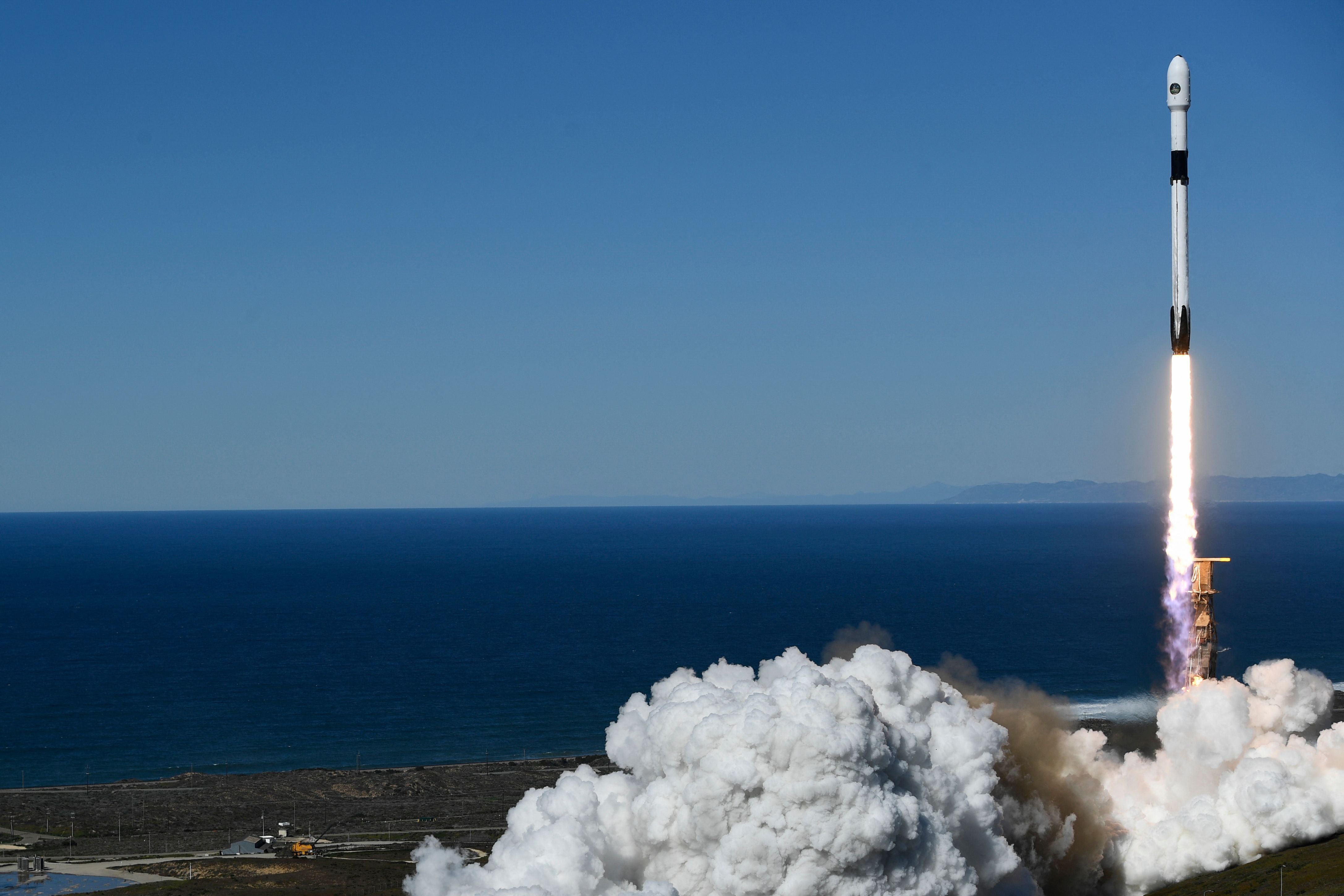SpaceX launches 47 Starlink satellites – as Elon Musk mocks Russian space agency boss
The latest SpaceX Falon 9 rocket launch adds more Starlink satellites to the space-based broadband internet service just as Ukranians are using the system to stay connected during war with Russia.

Your support helps us to tell the story
From reproductive rights to climate change to Big Tech, The Independent is on the ground when the story is developing. Whether it's investigating the financials of Elon Musk's pro-Trump PAC or producing our latest documentary, 'The A Word', which shines a light on the American women fighting for reproductive rights, we know how important it is to parse out the facts from the messaging.
At such a critical moment in US history, we need reporters on the ground. Your donation allows us to keep sending journalists to speak to both sides of the story.
The Independent is trusted by Americans across the entire political spectrum. And unlike many other quality news outlets, we choose not to lock Americans out of our reporting and analysis with paywalls. We believe quality journalism should be available to everyone, paid for by those who can afford it.
Your support makes all the difference.SpaceX successfully launched another 47 Starlink satellites on Thursday, bringing the total number of the space-based broadband internet satellites in orbit to more than 1,900.
The launch comes as SpaceX also delivers Starlink internet terminals to Ukraine in an attempt to keep the besieged country’s civilian internet infrastructure intact amidst an invasion by Russian forces. The newly launched satellites will also help SpaceX get back on schedule after losing 40 Starlink satellites to a solar storm not long after launch on 4 February.
SpaceX conducts Starlink satellite launches using the company’s Falcon 9 rocket, which utilizes a reusable booster. A video of the launch posted to Twitter shows the upper stage reaching orbit, the nozzle of a Merlin engine glowing orange-hot, and then follows the autonomous booster’s return flight to land on an ocean-going platform.
Starlink satellites provide low-latency high-speed internet from space by flying in low Earth orbit, around 550 kilometers, much lower than the roughly 35,000 kilometers of traditional communications satellites in geosynchronous orbit. SpaceX currently plans to launch more than 4,000 Starlink satellites to provide global Starlink internet coverage.
On Twitter, Elon Musk joked that the rockets were being carried by “American broomsticks” in response to a comment from Roscosmos about cutting off access to Russian rockets.
Two days into Russia’s invasion of Ukraine, Ukrainian Vice Prime Minister Mykhailo Fedorov asked SpaceX CEO Elon Musk for help directly on Twitter.
“While you try to colonize Mars — Russia try to occupy Ukraine!” Mr Fedorov wrote. “We ask you to provide Ukraine with Starlink stations and to address sane Russians to stand.”
Mr Musk responded by sending Ukraine the small satellite dishes necessary for connecting to the internet through Starlink and offering the service for free to Ukrainians.
Mr Musk’s gesture drew the ire of Dmitry Rogozin, the head of Russia’s space agency, Roscosmos. Mr Rogozin allegedly complained to Russia Today about “civilian” technology like Stalink being offered as material aid to Ukraine during the war.
Mr Musk responded on Twitter, saying “Ukraine civilian Internet was experiencing strange outages – bad weather perhaps? – so SpaceX is helping fix it.”
Join our commenting forum
Join thought-provoking conversations, follow other Independent readers and see their replies
Comments